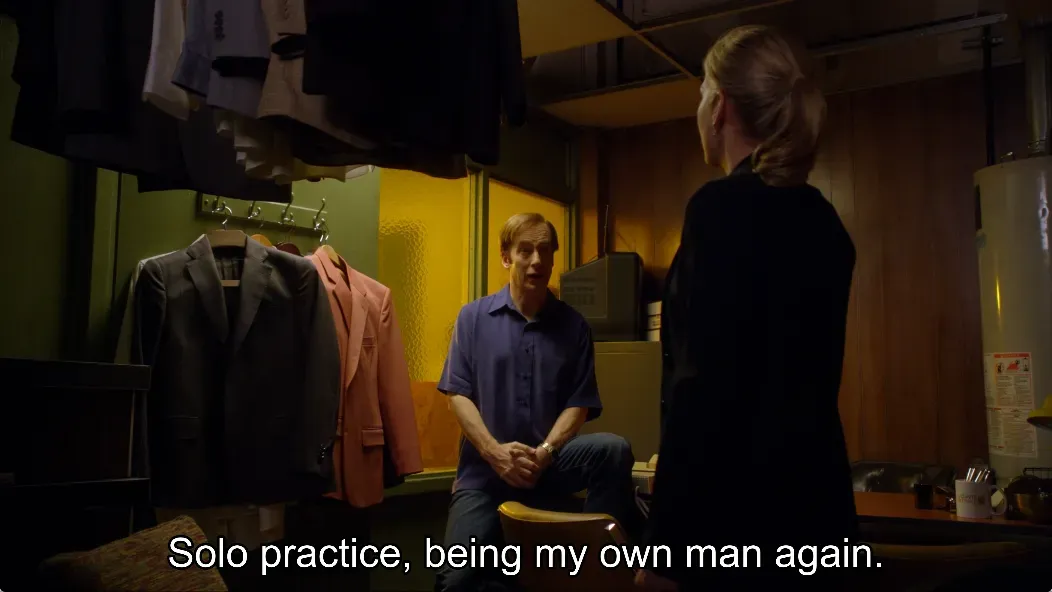In March 2025, I faced a question that kept me up at night: Where should I go next? After leaving Autodesk, I stood at a crossroad, deciding whether to chase stability or take a leap into the unknown. Big decisions like this expose how messy my mind can be, part logic, part emotion, part chaos. The followings are what worked for me, and maybe it could spark something for you.
Morning
I am sharper in the morning⛅. Sunlight, coffee, and a clear head make me optimistic and focused. At night, doubts creep in. Sometime a decision that felt bold at 10AM can look reckless by midnight. Therefore, I told myself if I felt uneasy about a choice, I’d sleep on it and revisit it in the morning.
Invert
Cite
First, I had long looked for insight by inversion in the intense manner counseled by the great algebraist Carl Jacobi: “Invert, always invert.” I sought good judgment mostly by collecting instances of bad judgment, then pondering ways to avoid such outcomes.
^4b3e14
Charlie Munger solved hard problem by flipping them upside down. Before the decision, I was try to have a reflection on the past. What did I like from my job? I take this into math reasoning. Let be “What do I like in my last job😍”, then would be “What I don’t like in my last job🤮”?
By listing these, I saw what I wanted: work that’s visible, creative, and aligned with my interests.
High Ceiling
Cite
Researchers Joan Meyers-Levy and Juliet Zhu believed that ceiling height can have a priming effect, influencing people to think more conceptually and creatively when the ceiling is high but in a much more specific and constrained way when the ceiling is low.
^c680cc
When I felt trapped, like I was pacing in a room with no exist.
🧱🧱🧱🧱🧱🧱🧱🧱
🧱 me 🧱 💡hope/solution
🧱🧱🧱🧱🧱🧱🧱🧱
I’d go to the Shanghai Library East which is the most visited place for me this month.

If you are stuck, change your surroundings. Work from a park, a library, or even a coffee shop with a view.
Ask Help
Cite
Good judges tend to be experienced and smart, but they also tend to be actively open-minded and willing to learn from new information.
^6cd10b
In the book Noise, the authors introduce 2 kinds of people who make better judgement.
- high IQ and smart
- open-minded The latter is more important than the former. Hence, I reached out to 7 friends for advice on my next move. Their responses varied wildly, and that was the point! Some cheered my ideas; others challenged them.
Cite
Be thankful when people disagree with you in good faith because they are being kind when they do.
^65c918
I am deeply grateful for those who are willing to speak their minds, even when they know their words might break my heart.
Long Term
Cite
The classical virtues are all decision-making heuristics to make one optimize for the long term rather than for the short term.
^8be06a
This is the most important factor in my decision. There are 2 paths for me to choose.
Path 1: Short-term ease(layoff pain killer). Take another 9-to-5 tech job in Shanghai. Decent pay, cozy lifestyle, no big changes from now. I can still enjoy my favorite Italian restaurant Bella Napoli on big days. But in the long run? Shanghai’s cost of living would outpace my salary, and age discrimination in China’s tech industry could leave me jobless at 35. Comfort now, regret later.
Path 2: Short-term pain, maybe no long-term pain. Start my own business. Zero income at first, endless stress, and a high chance of failure(most startups die within 3 years). My parents might nag, “Why not just get a job?” But if I could make it, if I could grow my passive income, I could break the time-spent-money-earn cycle.

Path 2 is tough, but it’s the one I’d regret not taking. I am terrified now. Yes, I am. I am no hero and I am not genius at all. But I refuse to live with the regret of not trying. Compared to 35, younger me might have nothing to lose.
Well. I could foresee there will be failure in the future. I might be sad, might be humiliated, might be choked, might be crying aloud. But I will never regret the decision I made this month. I’m already filled with enough regret - I don’t want to one day ask myself, “Why didn’t I start my own business when I was 30?” after getting laid off or stuck in a dead-end job.
I made my decision and I want to start my own business. Wish me good luck.
Cite
Finally, when young people who “want to help mankind” come to me asking, “What should I do? I want to reduce poverty, save the world,” and similar noble aspirations at the macro-level, my suggestion is:1)Never engage in virtue signaling;
2)Never engage in rent-seeking;
3)You must start a business. Put yourself on the line, start a business.Yes, take risk, and if you get rich (which is optional), spend your money generously on others. We need people to take (bounded) risks. The entire idea is to move the descendants of Homo sapiens away from the macro, away from abstract universal aims, away from the kind of social engineering that brings tail risks to society. Doing business will always help (because it brings about economic activity without large-scale risky changes in the economy); institutions (like the aid industry) may help, but they are equally likely to harm (I am being optimistic; I am certain that except for a few most do end up harming).
Courage (risk taking) is the highest virtue. We need entrepreneurs.
^bace07